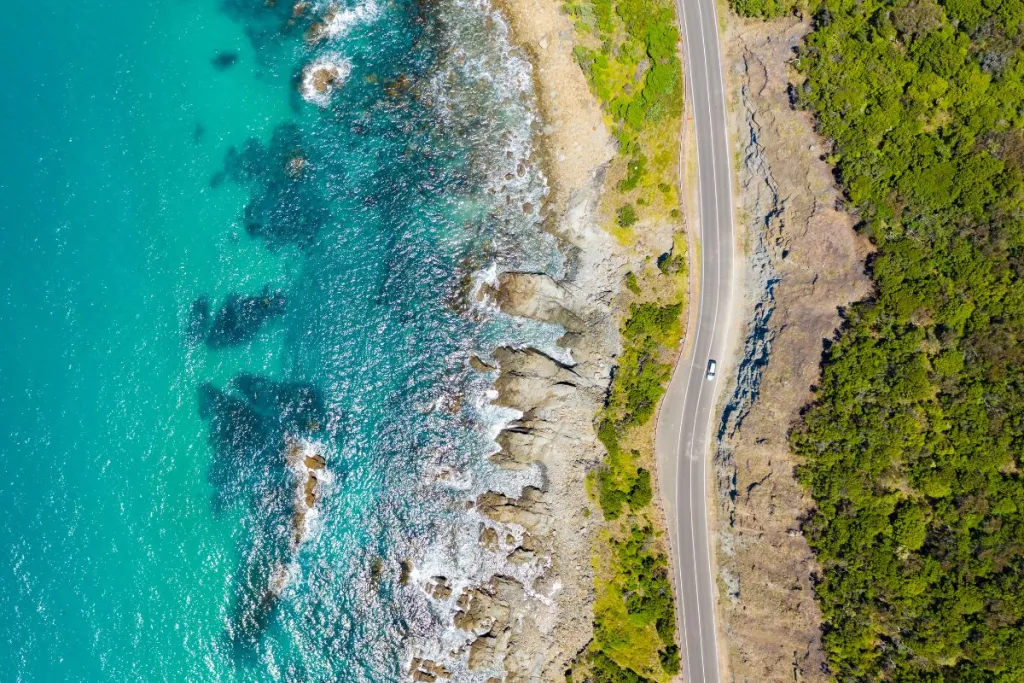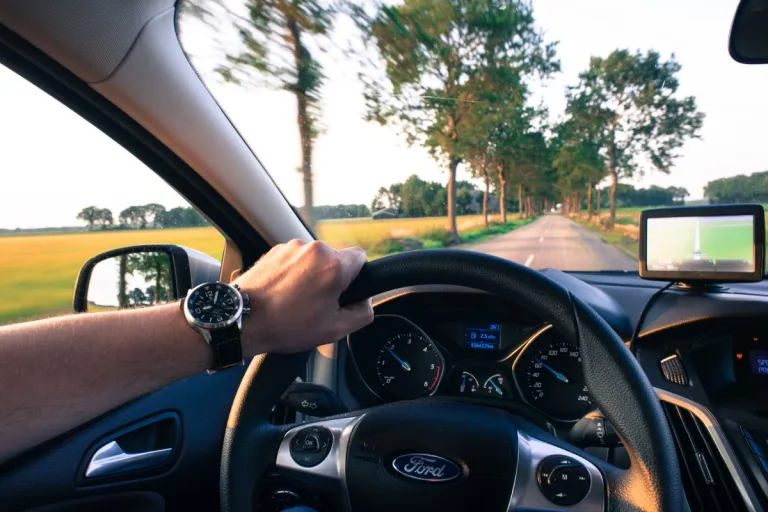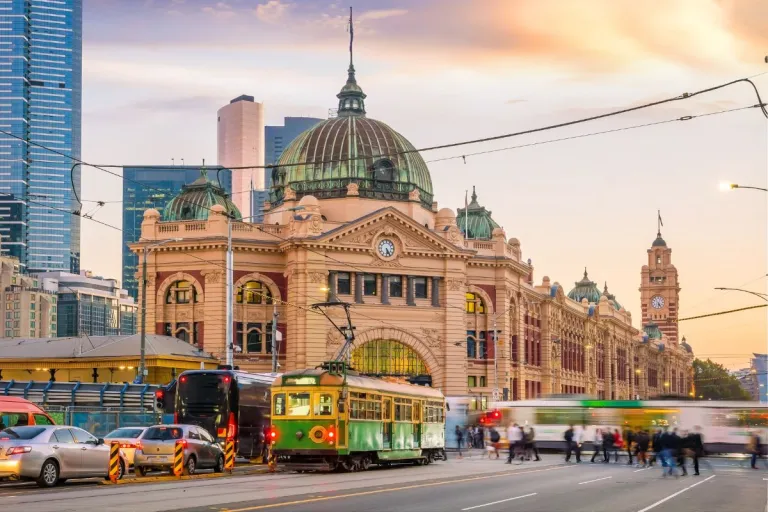Not just Boracay...
How to Rent a Car in Australia: A Step-by-Step Muslim-Friendly Travel Guide

If you're planning to explore Australia beyond its major cities, renting a car is your ticket to freedom. From scenic coastal highways and desert landscapes to charming small towns with hidden halal cafés, having your own wheels allows you to travel at your own pace and discover the country’s diverse regions, many of which are not easily accessible by public transport. For Muslim travellers, it also means having the flexibility to plan around prayer times, find halal food along the way, and stop when and where needed. This guide walks you through everything you need to know about renting a car in Australia — from essential documents to driving tips, insurance, and what to do in case of an accident.
Also read: Sydney or Melbourne: Which Aussie City Should You See For a First Time Muslim Traveller?
Step 1: Check licence & identification requirements
Before you book a rental car in Australia, the first thing to confirm is whether your driving licence is valid. Most car rental companies accept foreign licences as long as they’re in English. If your licence is not in English — for example, if it’s written in Malay or another language — you’ll need to carry an International Driving Permit (IDP) along with your original licence. Additionally, you’ll be required to present a valid passport and a credit card in the main driver’s name. Note that credit cards are almost always necessary for the security deposit; many companies don’t accept debit cards. It’s a good idea to keep all important documents organised in one folder or pouch, especially if you’re planning to fly into one city and rent a car from the airport.
Step 2: Choose the right vehicle for your trip
 Image credit: ClickerHappy | Canva Pro
Image credit: ClickerHappy | Canva Pro
Australia’s diverse landscapes require careful consideration when it comes to choosing your vehicle. If you’re sticking to major cities or driving along well-maintained highways like the Pacific Motorway or Great Ocean Road, a compact sedan will work perfectly. However, if your trip includes venturing into national parks, rural areas, or unpaved Outback roads, a 4WD (four-wheel drive) vehicle is a safer and more comfortable option. For families or groups of friends, larger SUVs or vans provide more space for luggage and added comfort over long distances. For Muslim travellers bringing prayer items or food supplies, having extra boot space can be especially helpful. Packing essentials such as a small prayer mat, telekung, or travel-sized prayer beads can make long drives more comfortable and spiritually grounded.
Step 3: Book early and compare rental providers
Once you've decided on the type of vehicle you need, the next step is to book your rental in advance — especially if you’re travelling during peak periods like school holidays or the Australian summer (December to February). Early bookings not only guarantee better rates but also give you more vehicle options. Most travellers choose from international providers like Hertz, Avis, Budget, and Thrifty, but it’s worth checking local brands as well, which sometimes offer competitive deals. Use car rental comparison websites to see which company includes benefits like unlimited kilometres or free additional drivers. For one-way trips, confirm if drop-off fees apply when returning the car to a different location. Many major rental offices are located at airports, and some are conveniently near halal restaurants or malls with prayer rooms — ideal for a break after a long flight.
Step 4: Understand rental insurance and inclusions
It’s crucial to understand what kind of insurance coverage is included in your rental. Most companies provide a basic level of protection called “standard cover,” which usually comes with a high excess. This means that if your vehicle is damaged or stolen, you’ll be required to pay a large amount out-of-pocket. To reduce this risk, you can purchase a Collision Damage Waiver (CDW) or excess reduction add-on directly from the rental provider. Alternatively, check whether your travel insurance policy or credit card includes rental car coverage. Just be sure to read the terms carefully to avoid overlapping coverage or exclusions. While reviewing your booking, also take note of the fuel policy (usually full-to-full), any limits on daily kilometres, and whether the car includes an e-tag for toll roads — which are common in cities like Sydney, Melbourne, and Brisbane. A bit of planning here helps avoid surprise charges later.
Step 5: Collect the car with the right documents
On the day you pick up your car, bring along your driving licence (plus IDP, if required), your passport, the credit card used for booking, and a copy of the rental confirmation. The credit card should have enough available limit to cover the security deposit, which can range from a few hundred to over a thousand Australian dollars depending on the vehicle type. Take this opportunity to ask the rental staff about toll arrangements, fuel type, and local road tips. If you’re unfamiliar with driving on the left, consider practising in a quieter area before entering busy roads. For Muslim travellers who plan to visit mosques in multiple cities, this is also a good time to ask about driving distances or parking rules near CBD areas where Friday prayers may be held.
Step 6: Inspect the car thoroughly before driving off
Before leaving the rental lot, walk around the car and inspect it carefully. Look for scratches, dents, or any marks on the bodywork, and be sure to photograph or video anything you notice. Don’t forget to check the interior too — seats, mirrors, dashboard lights — and confirm that the car comes with a spare tyre, jack, and the necessary tools. It’s always best to document the vehicle’s condition to avoid disputes when returning it. If you’re planning a long road trip, test the air conditioning and infotainment system to ensure everything is in working order. Having your phone connected for GPS navigation, Qibla direction, and halal food searches will be key to a comfortable journey.
Step 7: Know the driving rules and stay safe on the road
Australia has strict road rules and driving etiquette. Vehicles drive on the left side of the road, and all passengers must wear seatbelts. Roundabouts flow clockwise, and drivers must give way to the right. Speed limits are clearly posted and generally sit between 100 and 110 km/h on highways. One important thing to remember is that wildlife — particularly kangaroos and wombats — often appear on roads in regional areas. To reduce the risk of collisions, avoid driving at dawn, dusk, or night when animals are most active. Fatigue is also a common danger on long, straight highways, so plan rest breaks, stretch your legs, and stay hydrated. For Muslim travellers, prayer breaks can double as rest stops — apps like HalalTrip and Muslim Pro are useful for locating nearby mosques or musallas. If you can’t find one, service stations or quiet roadside parks can offer a discreet space to lay out a prayer mat.
Step 8: What to do in case of an accident
Accidents can happen, even to the most careful drivers, so it’s essential to know what to do. First, make sure everyone is safe and, if possible, move the vehicle out of traffic. Turn on your hazard lights and assess the situation. If anyone is injured or the damage is serious, call Australia’s emergency number — 000 — and wait for authorities. Even in minor accidents, you’ll need to exchange contact and insurance details with other drivers involved. It’s best to notify the police regardless of severity, as rental companies may require a police report when filing insurance claims. Contact your rental company immediately — they will advise on next steps and arrange towing if necessary. Remember to take photos of the damage, road conditions, and vehicle positions, and gather witness details if available. Having comprehensive insurance makes this process much less stressful and ensures you won’t be left with a hefty bill.
Step 9: Returning the car
When it’s time to return your rental car, make sure to bring it back at the scheduled time and to the agreed drop-off location. Refill the fuel tank to the same level it was at pick-up, as most rentals operate on a full-to-full policy. Clean out any rubbish, vacuum if needed, and check that you haven’t left anything behind. Ask for a staff member to inspect the car in your presence, and keep the final paperwork or receipt until your security deposit is fully refunded. For Muslim travellers who need to return the vehicle near prayer time, airports and major city branches often have nearby mosques or prayer facilities — it’s worth checking ahead to plan your schedule accordingly.
 Image credit: f11photo | Canva Pro
Image credit: f11photo | Canva Pro
Also read: Emergency Numbers Around the World Every Muslim Traveller Should Know
Road-tripping in Australia as a Muslim traveller
There’s no better way to experience Australia than by road. From multicultural cities with thriving halal food scenes to natural wonders deep in the Outback, a road trip allows you to explore at your own pace and in a way that fits your lifestyle. For Muslim travellers, this means more flexibility to find halal food, schedule prayer stops, and enjoy the journey with peace of mind. With the right preparation, a valid licence, solid insurance coverage, and a reliable rental car, your Australian adventure is sure to be smooth, safe, and unforgettable.
Published at
About Author
Aimi Zulkiflee
Subscribe our Newsletter
Get our weekly tips and travel news!
Recommended Articles
10 Best Halal-Friendly Destinations in The Philippines for Muslim Travellers 10 Best Places for Muslim Travellers to See Tulip Festivals in 2025 Fun Fact: Tulips didn’t actually come from the Netherlands but Türkiye!
10 Halal Anime Food Guide for Muslim Travellers in Japan Muslim-friendly versions of popular anime dishes across Japan!
Top 10 Popular Muslim-Friendly Destinations to Visit in 2025 Our schedules are packed, buddies!
10 Halal Restaurants in Bangkok to Satisfy Your Thai Cravings From Korean-style BBQ and Punjabi curries to award-winning shrimp Pad Thai, take your pick from these amazing Halal restaurants in Bangkok.
Latest Articles
Middle East Conflict 2026: What Travellers Need to Know Governments have issued “Do Not Travel” advisories for Iran and Israel, along with heightened warnings for parts of the Gulf.
The Ultimate Bandung Travel Guide for Muslim Travelers, from Culinary Gems to Hotels Explore Bandung with confidence!
Best Sharia Hotels in Indonesia for Your Next Holiday : Peaceful & Comfortable Sharia-compliant hotels are becoming the top choice for travelers seeking extra comfort and peace of mind!
10 Must-Visit Halal Suhoor Spots in Bandung, Some Open 24/7 Make your Ramadan mornings easier and tastier.
8 Best 24-Hour Spots for Suhoor in Jakarta many restaurants and food stalls stay open until the early hours or even operate 24/7

